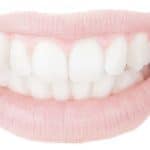Resorbable vascular wall stent in development
26 July 2019
| A bioresorbable vascular wall stent made from the zinc is being developed in Freiburg/Germany. Zinc is used by the body as a trace element and is not perceived as a foreign body. Therefore, the body’s rejection reaction – and thus the complication rate – is likely to be significantly lower than with conventional stents. | |
|
The researchers hope that the newly developed stents will be a great step forward, particularly for children and young people with vascular problems. Due to the growth of blood vessels, classical implants made of non-degradable material such as cobalt-chromium could become too small and would have to be expanded under X-ray fluoroscopy.
Since the new stents decompose completely over time, they do not impede the growth of the vessels. In the best case scenario, the children are spared another intervention (Hehrlein). |
|
| Author(s) | Source |
| hil | aerzteblatt.de, July 26, 2019 (german) |
| This is a post of a scientific or business information. The information given here is checked thoroughly by “Implant-Register”. However we can´t be responsible for the content. Contact the publisher, if you have questions. You may inform us about changes of the information to improve the Register. | |
| Comments: n/a let us know |
|
Find NEWS and PUBLICATIONS here according to your interests or use the search box.









